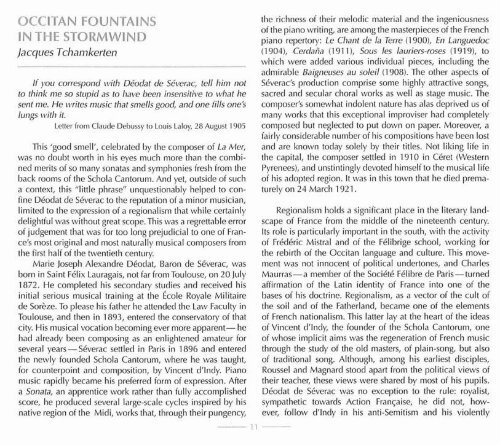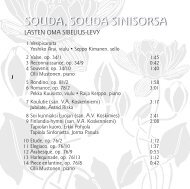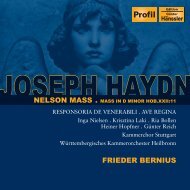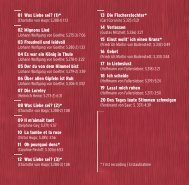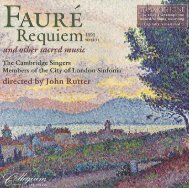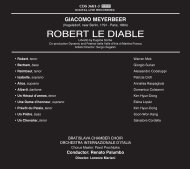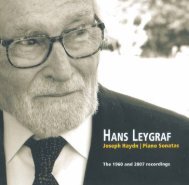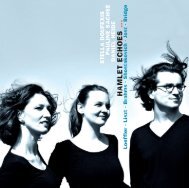ES abords d'un village dans le Languedoc
ES abords d'un village dans le Languedoc
ES abords d'un village dans le Languedoc
- No tags were found...
Create successful ePaper yourself
Turn your PDF publications into a flip-book with our unique Google optimized e-Paper software.
OCCITAN FOUNTAINSIN THE STORMWINDJacques TcharnkertenIf )IOU correspond 111ith Deadat de Yverac, tell him notto think me so stupid as to have been insensitive to what hesent me. He \.clrites music that smells good, and one fills one'slungs 111ith it.Letter from Claude Debussy to Louis Lalo): 28 August 1905This 'good sniell', ce<strong>le</strong>brated by the composer of La h<strong>le</strong>r,was no doubt worth in his eyes much more than the combinedmerits of so many sonatas and symphonies fresh from theback rooms of the Schola Cantoruni. And yet, outside of sucha context, this "litt<strong>le</strong> phrase" unquestionably helped to confineDCodat de Severac to the reputation of a minor musician,limited to the expression of a regionalism that whi<strong>le</strong> certainlydelightful was without great scope.This was a regrettab<strong>le</strong> errorof judgement that was for too long prejudicial to one of France'smost original and most naturally musical composers fromthe first half of the twentieth century.Marie Joseph A<strong>le</strong>xandre Deodat, Baron de Severac, wasborn in Saint Felix Lauragais, not far fromToulouse, on 20 July1872. He comp<strong>le</strong>tecl his secondary studies and received hisinitial serious musical training at the ~co<strong>le</strong> Ro)la<strong>le</strong> Militairede Sorere. To p<strong>le</strong>ase his father he attended the Law Facult)( inToulouse, and then in 1893, entered the conservatory of thatcity. His musical vocation becoming ever more apparent- hehad already been composing as an enlightened amateur forseveral )rears-S6verac sett<strong>le</strong>d in Paris in 1896 and enteredthe newly founded Schola Cantorum, where he was taught,for counterpoint and composition, by Vincent d'lndy. Pianomusic rapidly became his preferred form of expression. Aftera Sonata, an apprentice work rather than fully accomplishedscore, he produced several large-sca<strong>le</strong> cyc<strong>le</strong>s inspired by hisnative region of the Midi, works that, through their pungency,the richness of their melodic material and the ingeniousnessof the piano writing, are among the masterpieces of the Frenchpiano repertory: Le Cliant de la Jerre (1 900), En Lan~uedoci1904), 'Cerdaha (1 91 l), Sous <strong>le</strong>s lauriers-roses (19'i 9), towhich were added various individual pieces, including theadmirab<strong>le</strong> Bai,qneuses au so<strong>le</strong>il (1908). The other aspects ofSeverac's production comprise some highly attractive songs,sacred and secular choral works as well as stage music. Thecomposer's somewhat indo<strong>le</strong>nt nature has alas deprived us ofmany works that this exceptional improviser had comp<strong>le</strong>telycomposecl but neg<strong>le</strong>cted to put down on paper. Moreover, afairly considerab<strong>le</strong> number of his compositions have been lostand are known today so<strong>le</strong>ly by their tit<strong>le</strong>s. Not liking life inthe capital, the composer sett<strong>le</strong>d in 1910 in Ceret (\VesternPyrenees), and unstintingly devoted himself to the musical lifeof his adopted region. It was in this town that he died prematurelyon 24 March 1921.Regionalism holds a significant place in the literary landscapeof France from the midd<strong>le</strong> of the nineteenth century.Its ro<strong>le</strong> is particularly important in the south, with the activityof Fr~deric Mistral and of the Fklibrige school, working forthe rebirth of the Occitan language and culture. This movementwas not innocent of political undertones, and Char<strong>le</strong>sMaurras-a member of the SociCtC FClibre de Paris-turnedaffirmation of the Latin identity of France into one of thebases of his doctrine. Regionalism, as a vector of the cult ofthe soil and of the Fatherland, became one of the e<strong>le</strong>mentsof French nationalism. This latter lay at the heart of the ideasof Vincent d'lndy, the founder of the Schola Cantorum, oneof whose implicit aims was the regeneration of French musicthrough the study of the old masters, of plain-song, but alsoof traditional song. Although, among his earliest discip<strong>le</strong>s,Roussel and Magnarcl stood apart from the political views oftheir teacher, these views \yere shared by most of his pupils.Deodat de SCverac was no exception to the ru<strong>le</strong>: royalist,sympathetic towards Action Franqaise, he did not, however,follow d'lndy in his anti-Semitism and his vio<strong>le</strong>ntly


